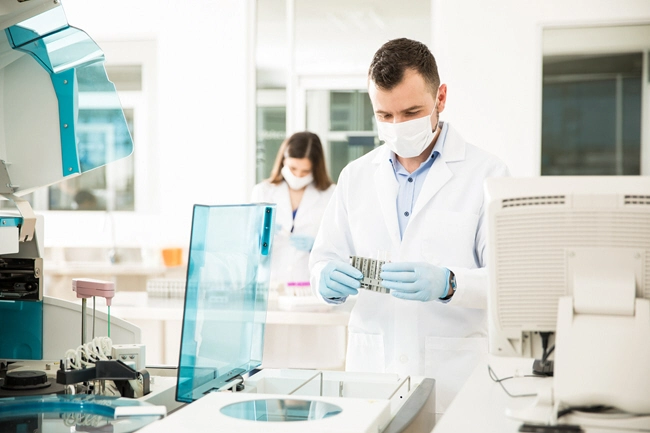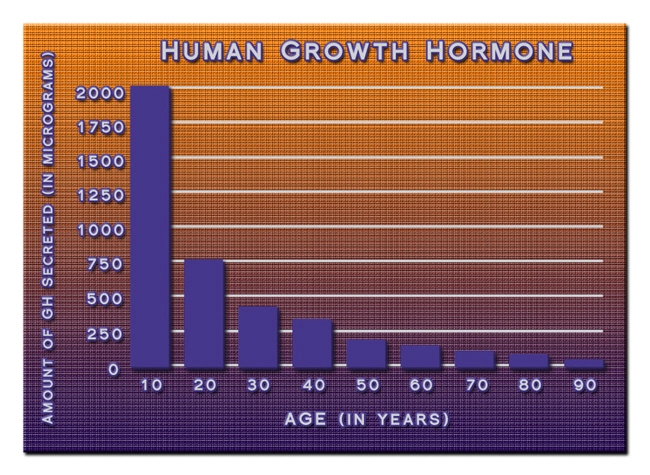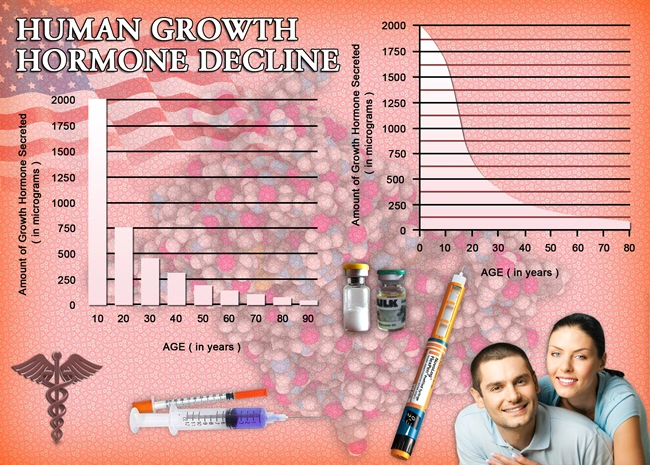
Introduction to Penile Bleeding
Penile bleeding, while alarming, is a condition that American males may encounter due to various underlying causes. Understanding the reasons behind this phenomenon, recognizing the symptoms, and knowing when to seek emergency care are crucial steps in managing this health concern effectively.
Causes of Penile Bleeding
Penile bleeding can arise from a variety of sources, ranging from minor injuries to more serious medical conditions. One common cause is trauma, which may occur during sexual activity, sports, or accidents. Such incidents can lead to superficial cuts or deeper injuries that result in bleeding.
Infections, such as sexually transmitted infections (STIs) like herpes or syphilis, can also cause penile bleeding. These infections may lead to the formation of ulcers or sores on the penis, which can bleed when irritated or during sexual activity.
Another potential cause is balanitis, an inflammation of the glans penis, often due to poor hygiene or a yeast infection. This condition can cause redness, swelling, and sometimes bleeding, particularly in uncircumcised men.
More serious conditions that may lead to penile bleeding include penile cancer and Peyronie's disease. Penile cancer, though rare, can manifest as a sore or lump on the penis that may bleed. Peyronie's disease, characterized by the development of fibrous scar tissue inside the penis, can cause painful erections and, in some cases, bleeding.
Symptoms Accompanying Penile Bleeding
When experiencing penile bleeding, American males may notice several accompanying symptoms that can help identify the underlying cause. These symptoms may include pain, swelling, or the presence of a lump on the penis. In cases of infection, additional symptoms such as discharge, fever, or painful urination may be present.
It is important to pay attention to the nature of the bleeding. Is it a steady flow, or does it occur only during specific activities? Does the bleeding stop on its own, or does it persist? These observations can provide valuable information to healthcare providers.
When to Seek Emergency Care
While not all instances of penile bleeding require immediate emergency care, certain situations warrant prompt medical attention. If the bleeding is severe and does not stop after applying pressure, it is crucial to seek emergency care. Similarly, if the bleeding is accompanied by severe pain, significant swelling, or signs of infection, such as fever or pus, immediate medical evaluation is necessary.
In cases where penile bleeding follows an injury, especially if the injury is deep or caused by a penetrating object, emergency care should be sought to assess the extent of the damage and prevent complications.
Preventive Measures and Self-Care
To minimize the risk of penile bleeding, American males can take several preventive measures. Practicing safe sex by using condoms can reduce the risk of STIs that may lead to penile bleeding. Maintaining good hygiene, particularly for uncircumcised men, can help prevent balanitis and other infections.
If penile bleeding occurs, applying gentle pressure with a clean cloth can help control minor bleeding. However, it is important not to use any over-the-counter medications or home remedies without consulting a healthcare provider, as these may mask symptoms or worsen the condition.
Conclusion
Penile bleeding is a condition that can be caused by a range of factors, from minor injuries to serious medical issues. By understanding the causes, recognizing the symptoms, and knowing when to seek emergency care, American males can effectively manage this health concern. Regular check-ups and open communication with healthcare providers can further ensure prompt diagnosis and treatment, promoting overall penile health and well-being.
Contact Us Today For A Free Consultation
Dear Patient,
Once you have completing the above contact form, for security purposes and confirmation, please confirm your information by calling us.
Please call now: 1-800-380-5339.
Welcoming You To Our Clinic, Professor Tom Henderson.

- Managing Penile Skin Conditions: Symptoms, Treatments, and Prevention Strategies [Last Updated On: February 21st, 2025] [Originally Added On: February 21st, 2025]
- Understanding the Psychological Toll of Penile Health Issues: A Comprehensive Overview for American Males [Last Updated On: March 1st, 2025] [Originally Added On: February 28th, 2025]
- Advancements in Penile Prostheses: Enhancing ED Treatment and Patient Satisfaction [Last Updated On: March 17th, 2025] [Originally Added On: March 17th, 2025]
- Penile Trauma: Emergency Care, Long-Term Management, and Latest Advances in Penis Science [Last Updated On: March 18th, 2025] [Originally Added On: March 18th, 2025]
- Testosterone's Crucial Role in Penile Health and Function for American Males [Last Updated On: March 19th, 2025] [Originally Added On: March 19th, 2025]
- Penile Enlargement: Safety, Efficacy, and Methods for American Males [Last Updated On: March 19th, 2025] [Originally Added On: March 19th, 2025]
- Penile Nerve Blocks: Enhancing Urological Surgery and Pain Management for American Males [Last Updated On: March 19th, 2025] [Originally Added On: March 19th, 2025]
- Optimal Penile Hygiene: Practices for Health and Well-being in American Males [Last Updated On: March 19th, 2025] [Originally Added On: March 19th, 2025]
- Lifestyle Factors Impacting Penile Health: Diet, Exercise, and More for American Males [Last Updated On: March 20th, 2025] [Originally Added On: March 20th, 2025]
- Understanding and Managing Penile Ulcers in American Males: Causes, Diagnosis, and Treatment [Last Updated On: March 20th, 2025] [Originally Added On: March 20th, 2025]
- Obesity's Impact on Penile Function: Vascular, Hormonal, and Psychological Effects [Last Updated On: March 21st, 2025] [Originally Added On: March 21st, 2025]
- Spinal Cord Injuries and Penile Function: Impacts and Management for American Males [Last Updated On: March 21st, 2025] [Originally Added On: March 21st, 2025]
- Chemotherapy's Impact on Penile Health: Effects, Management, and Long-term Considerations [Last Updated On: March 22nd, 2025] [Originally Added On: March 22nd, 2025]
- Medications and Penile Function: Impacts on American Males' Health [Last Updated On: March 22nd, 2025] [Originally Added On: March 22nd, 2025]
- Genetics of Penile Development: Insights and Advances for American Males [Last Updated On: March 22nd, 2025] [Originally Added On: March 22nd, 2025]
- Penile Vascular Health: Understanding, Preventing, and Treating Vascular-Related ED [Last Updated On: March 22nd, 2025] [Originally Added On: March 22nd, 2025]
- Penile Biopsy: Essential Diagnostic Tool for Urological Health in American Males [Last Updated On: March 22nd, 2025] [Originally Added On: March 22nd, 2025]
- Penile Skin Grafts: Indications, Procedures, and Outcomes for American Males [Last Updated On: March 22nd, 2025] [Originally Added On: March 22nd, 2025]
- Dietary Impact on Penile Health: Antioxidants, Omega-3s, and Nitrates [Last Updated On: March 23rd, 2025] [Originally Added On: March 23rd, 2025]
- Managing Penile Allergies: Symptoms, Diagnosis, and Effective Strategies for American Males [Last Updated On: March 23rd, 2025] [Originally Added On: March 23rd, 2025]
- Penile Prosthetics: Effective Solution for Severe Erectile Dysfunction in American Males [Last Updated On: March 23rd, 2025] [Originally Added On: March 23rd, 2025]
- Penile Ultrasound: Diagnosing Sexual Dysfunction in American Males [Last Updated On: March 24th, 2025] [Originally Added On: March 24th, 2025]
- Penile Girth's Impact on Sexual Satisfaction: Insights for American Males [Last Updated On: March 24th, 2025] [Originally Added On: March 24th, 2025]
- Understanding Penile Numbness: Causes, Diagnosis, and Treatment Strategies [Last Updated On: March 24th, 2025] [Originally Added On: March 24th, 2025]
- Chronic Diseases and Penile Health: Impacts and Management for American Males [Last Updated On: March 24th, 2025] [Originally Added On: March 24th, 2025]
- Penile Warts: Causes, Symptoms, Treatment, and Prevention for American Males [Last Updated On: March 24th, 2025] [Originally Added On: March 24th, 2025]
- Penile MRI: Advancing Diagnosis and Treatment in Men's Health [Last Updated On: March 24th, 2025] [Originally Added On: March 24th, 2025]
- Understanding Penile Rash: Types, Causes, and Effective Treatments for American Men [Last Updated On: March 25th, 2025] [Originally Added On: March 25th, 2025]
- Understanding Penile Discharge: Causes, Symptoms, and Treatment for American Males [Last Updated On: March 25th, 2025] [Originally Added On: March 25th, 2025]
- Penile Reconstruction: Techniques, Outcomes, and Psychological Impact on American Males [Last Updated On: March 25th, 2025] [Originally Added On: March 25th, 2025]
- Penile Vein Anatomy, Function, and Common Disorders: A Comprehensive Overview [Last Updated On: March 25th, 2025] [Originally Added On: March 25th, 2025]
- Understanding and Managing Penile Sensory Neuropathy in American Males [Last Updated On: March 25th, 2025] [Originally Added On: March 25th, 2025]
- Hormonal Imbalances and Their Impact on Penile Health in American Males [Last Updated On: March 25th, 2025] [Originally Added On: March 25th, 2025]
- Understanding Penile Discoloration: Causes, Symptoms, and Treatment Options for American Males [Last Updated On: March 25th, 2025] [Originally Added On: March 25th, 2025]
- Neurological Disorders' Impact on Penile Function: Insights and Management Strategies [Last Updated On: March 26th, 2025] [Originally Added On: March 26th, 2025]
- Understanding Penile Lesions: Types, Causes, and Medical Interventions for American Males [Last Updated On: March 26th, 2025] [Originally Added On: March 26th, 2025]
- Penile Lymphatic System: Functions, Disorders, and Health Management [Last Updated On: March 26th, 2025] [Originally Added On: March 26th, 2025]
- Understanding and Managing Penile Pain: Causes, Diagnosis, and Treatment Strategies [Last Updated On: March 26th, 2025] [Originally Added On: March 26th, 2025]
- Penile Blood Tests: A Vital Tool for Diagnosing Systemic Health Issues in Men [Last Updated On: March 26th, 2025] [Originally Added On: March 26th, 2025]
- Penile Piercings: Health Risks, Types, and Medical Advice for American Males [Last Updated On: March 26th, 2025] [Originally Added On: March 26th, 2025]
- Penile Arteries and Erection Health: A Comprehensive Guide for American Males [Last Updated On: March 26th, 2025] [Originally Added On: March 26th, 2025]
- Understanding Penile Swelling: Causes, Diagnosis, and Management for American Males [Last Updated On: March 27th, 2025] [Originally Added On: March 27th, 2025]
- Exploring Penile Sensitivity: Impact on Sexual Health and Function in American Males [Last Updated On: March 27th, 2025] [Originally Added On: March 27th, 2025]
- Penile Nerve Anatomy: Impact on Sexual Health and Function in American Men [Last Updated On: March 27th, 2025] [Originally Added On: March 27th, 2025]
- Penile Injuries: Types, Impact on Sexual Function, and Importance of Timely Treatment [Last Updated On: March 27th, 2025] [Originally Added On: March 27th, 2025]
- Radiation Therapy's Impact on Penile Health: Effects, Management, and Future Research [Last Updated On: March 27th, 2025] [Originally Added On: March 27th, 2025]
- Understanding Penile Itching: Causes, Symptoms, and Effective Treatments [Last Updated On: March 28th, 2025] [Originally Added On: March 28th, 2025]
- Understanding Penile Lumps: Types, Causes, and Management for American Males [Last Updated On: March 29th, 2025] [Originally Added On: March 29th, 2025]
- Penile Health and Fertility: Insights and Management for American Males [Last Updated On: March 29th, 2025] [Originally Added On: March 29th, 2025]
- Penile Sores: Causes, Symptoms, and Medical Interventions for American Males [Last Updated On: March 30th, 2025] [Originally Added On: March 30th, 2025]
- Understanding Penile Edema: Causes, Diagnosis, and Treatment Strategies for American Males [Last Updated On: March 30th, 2025] [Originally Added On: March 30th, 2025]
- Penile Health and Overall Well-being: Insights and Strategies for American Males [Last Updated On: March 30th, 2025] [Originally Added On: March 30th, 2025]
- Understanding and Treating Penile Redness: Causes, Symptoms, and Effective Solutions [Last Updated On: April 1st, 2025] [Originally Added On: April 1st, 2025]
- Understanding Penile Dermatitis: Symptoms, Causes, and Treatment for American Males [Last Updated On: April 2nd, 2025] [Originally Added On: April 2nd, 2025]
- Penile Health and Mental Well-being: Insights for American Males [Last Updated On: April 4th, 2025] [Originally Added On: April 4th, 2025]
- Penile Health and Partner Satisfaction: Insights for American Males [Last Updated On: April 5th, 2025] [Originally Added On: April 5th, 2025]
- Understanding Penile Blisters: Causes, Symptoms, and Treatment Options for Men [Last Updated On: April 7th, 2025] [Originally Added On: April 7th, 2025]
- Causes, Diagnosis, and Management of Penile Burning in American Males [Last Updated On: April 8th, 2025] [Originally Added On: April 8th, 2025]
- Penile Health and STI Prevention: A Comprehensive Guide for American Males [Last Updated On: April 8th, 2025] [Originally Added On: April 8th, 2025]
- Understanding Penile and Prostate Health: A Comprehensive Guide for American Males [Last Updated On: April 8th, 2025] [Originally Added On: April 8th, 2025]
- Penile Health Impact on Urinary Function: Insights for American Males [Last Updated On: April 8th, 2025] [Originally Added On: April 8th, 2025]
- Managing Penile Sensitivity Disorders: Causes, Diagnosis, and Treatment Options [Last Updated On: April 9th, 2025] [Originally Added On: April 9th, 2025]
- Understanding and Managing Penile Dryness: Causes, Symptoms, and Effective Treatments [Last Updated On: April 9th, 2025] [Originally Added On: April 9th, 2025]
- Understanding Penile Foreskin Health: Causes, Symptoms, and Care [Last Updated On: April 9th, 2025] [Originally Added On: April 9th, 2025]
- Penile Health as Cardiovascular Indicator: Study Insights for American Males [Last Updated On: April 11th, 2025] [Originally Added On: April 11th, 2025]
- Penile Health: Impact on Reproductive Wellness and Integrated Care Strategies [Last Updated On: April 12th, 2025] [Originally Added On: April 12th, 2025]
- Managing Penile Odor: Causes, Symptoms, and Effective Treatment Strategies for Men [Last Updated On: April 12th, 2025] [Originally Added On: April 12th, 2025]
- Penile Health and Hormonal Balance: A Comprehensive Guide for American Men [Last Updated On: April 13th, 2025] [Originally Added On: April 13th, 2025]
- Penile Health and Immune System: A Comprehensive Guide for American Men [Last Updated On: April 15th, 2025] [Originally Added On: April 15th, 2025]
- Understanding Penile Irritation: Causes, Symptoms, and Dermatological Treatments for American Men [Last Updated On: April 15th, 2025] [Originally Added On: April 15th, 2025]
- Aging and Penile Sensitivity: Understanding Changes and Maintaining Health [Last Updated On: April 15th, 2025] [Originally Added On: April 15th, 2025]
- Penile and Musculoskeletal Health: Causes, Symptoms, Treatments, and Holistic Approaches [Last Updated On: April 16th, 2025] [Originally Added On: April 16th, 2025]
- Penile Health and Sexual Function: Medical Insights and Holistic Management Strategies [Last Updated On: April 16th, 2025] [Originally Added On: April 16th, 2025]
- Exploring the Link Between Penile and Respiratory Health in American Males [Last Updated On: April 18th, 2025] [Originally Added On: April 18th, 2025]
- Penile Health and Endocrine Disorders: Causes, Symptoms, and Management Strategies [Last Updated On: April 18th, 2025] [Originally Added On: April 18th, 2025]
- Penile Health and Kidney Function: Vital Connections and Preventive Measures for Men [Last Updated On: April 19th, 2025] [Originally Added On: April 19th, 2025]
- Neurological Health's Impact on Penile Sensitivity: Insights for American Males [Last Updated On: April 19th, 2025] [Originally Added On: April 19th, 2025]
- Exploring the Link Between Penile and Gastrointestinal Health in American Males [Last Updated On: April 19th, 2025] [Originally Added On: April 19th, 2025]









